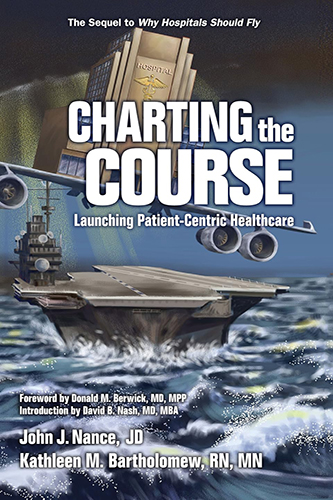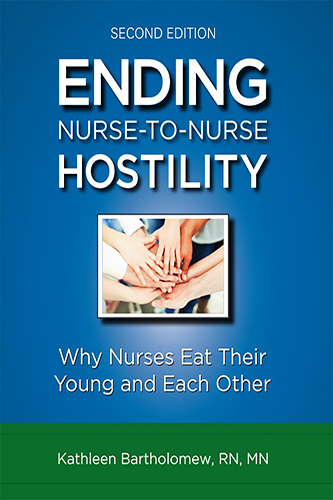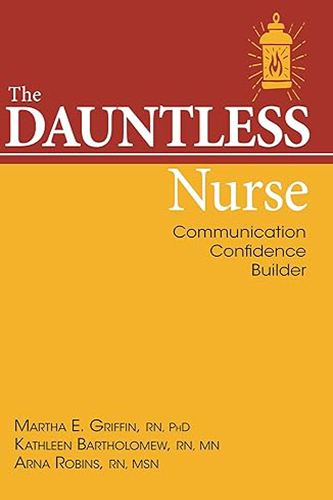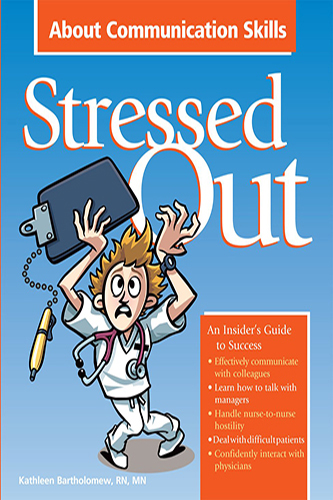$5,001 - $7,500
Keynote fee falls within this range. For exact fee, please contact us.
Washington
Request More Info
● Biography
Before turning to healthcare as a career in 1994, Kathleen Bartholomew held positions in marketing, business, communications and teaching. It was these experiences that allowed her to look at nursing from a different perspective and speak poignantly to the issues that effect nurses today.
Kathleen Bartholomew, RN, MN has been a national speaker for the nursing profession for the past 20 years. As the manager of a 57 bed surgical unit in Seattle, Kathleen quickly recognized that creating a culture where staff felt a sense of belonging was critical to retention. Throughout Swedish Medical Center Kathleen spoke to the numerous factors which propel our society toward isolation and encouraged staff to connect and value one another. During her tenure as manager, staff, physician and patient satisfaction improved significantly as she implemented her down-to earth strategies for creating community. Despite the nursing shortage, Kathleen could always depend on a waiting list of nurses for her unit.
Kathleen’s Bachelor’s Degree is in Liberal Arts with a strong emphasis on Sociology. This background laid the foundation for her to correctly identify the norms and particular to healthcare – specifically physician-nurse relationships and nurse-to-nurse hostility. For her Master’s Thesis she authored Speak Your Truth: Proven Strategies for Effective Nurse-Physician Communication which is the only book to date which addresses physician-nurse issues. In December of 2005, Kathleen resigned her position as manager in order to write a second book on horizontal violence in nursing. The expression, “why nurses eat their young” has existed for many years in the nursing profession (and has troubled many in the profession). In her book, Ending Nurse to Nurse Hostility (2006), Kathleen offers the first comprehensive and compassionate look at the etiology, impact and solutions to horizontal violence. Kathleen won the best media depiction of nursing for her Op Editorial in the Seattle P.I. and in 2010 she was nominated by Health Leaders Media as one of the top 20 people changing healthcare in America.
Kathleen’s passion for creating healthy work environments is infectious. She is an expert on hospital culture and speaks internationally to hospital boards, the military, leadership and staff about safety, communication, cultural change and power. With her husband, John J. Nance, she co-authored, Charting the Course: Launching Patient-Centric Healthcare. From the bedside to the boardroom Kathleen applies research to practice with humor and an ethical call to excellence. Everyone that hears her is inspired.
● Featured Keynote Programs
From Pandemic to Promise: A Care Plan for Nursing
The Dauntless Nurse: Becoming a Skilled Communicator
Ultimately, it is the confidence and skill with which we hold our everyday conversations that will pave the way to a future time when our patients are safe, our voices are heard, and the skills and knowledge of this incredible profession are valued and utilized.
America needs nurses who are bold and intrepid; who have the confidence and skill to represent this noble profession. And at no other time in history have their voices been so desperately needed. Hospital based errors are now the third leading cause of death in America, despite our professional ethic of “First Do No Harm” – and yet recent surveys show that the majority of nurses are still avoiding the difficult conversations. In addition, the health of Americans is insidiously declining as the rates of cancer, diabetes and obesity steadily rise.
- Explain two reasons why our country needs nurses who are dauntless.
- Assess your confidence level in mastering challenging conversations.
- Identify a conversation that you have been avoiding and apply the DESC model.
- Discuss how and why courage plays a critical role in becoming dauntless.
A Passion for the Art of Nursing
Nursing is both a science and an art. The science of nursing requires us to engage our minds, while the art of nursing engages our soul. Using the power of story, Kathleen inspires nurses to be in awe and appreciation of nurses’ work. This lecture challenges the way we perceive our own profession, reminding us of the moments where we have connected to another human being on the deepest of levels. When we encourage the role of nurse as artist, and integrate these qualities into our daily routine, we unleash our own personal power. Nursing then becomes a place to be nourished rather than drained.
Objectives
- Re-kindle your passion for the nursing profession
- Describe the benefits of practicing both the art and science of nursing for both patients and nurses
- Identify two situations in your practice where you have experienced or observed nursing as “art”
- Explain why the art of nursing has been portrayed as ‘less than’ science
Understanding Nurse-to-Nurse Hostility: Why Civility Matters
The expression “Nurses eat their young” is so far removed from our idea of the caring and nurturing nurse that we shudder to think it could possibly be true. Bur the truth is nurses are hurting each other. Stories from the ‘front line’ cannot be ignored. These stories are the voices of nurses telling the world about their experiences. The first step to healing our relationships is the most difficult: to recognize and openly discuss the problem. Only by understanding the origin and reasons for our behaviors can we even begin to create the healing environment that is so desperately needed in nursing- for ourselves, as well as our patients.
Objectives
- Understand that nurse-to-nurse hostility is an unconscious human behavioral response
- Explain why nurses experience un-caring behaviors from their peers.
- List one action that you can take to build a culture of healthy relationships and/or decrease horizontal hostility in the workplace.
- Describe the impact of horizontal hostility on the patient, our peers, and our profession
Nursing Leadership: Webinar Series with Nursing Salons
This program consists of a series of three webinars followed by an on-site visit. The in-person session will give a high-level re-cap of the previous webinars (and can be recorded). This presentation is followed by three nursing salons where I facilitate and encourage nurses to share their realities, shift their perceptions, and share strategies to thrive. Salons create a safe place for nurses to integrate the material and learn from each other. The result is increased bonding between nurses because they can acknowledge a shared reality and internalize that they are part of a team and a noble profession.
The main objectives of this program are to support and inspire nurses by:
Re-framing current challenges by presenting a broader perspective, and providing the opportunity to create a new story
Empowering voice and emphasizing the need for each nurse to speak their truth while role modeling professionalism
Personalizing knowledge so that they can objectively identify their limits, and learn skills to counter-balance stress
Renew hope, optimism, and community by providing the opportunity to share individual realities in a group setting
Webinar 1 – PERSPECTIVE: Framing Reality
Research has shown that optimism is one of the most critical factors to resilience. But after more than a year of being a nurse in a pandemic, nurses are struggling to remain positive. Constantly bombarded by personal and professional stressors, nurses are, in one word, suffering.
In the first of three sessions we take an objective look at the reality of nursing in 2021-2022. We will review a care plan for our profession, and then take this information down to a personal level to identify supportive, positive actions that give us a hopeful perspective from which to re-frame and engage in our everyday realities.
Webinar 2 – Team Players Who Speak Their Truth
In the culture of health care nurses who disagree passively or aggressively to the norm are labeled as not being a good “team player”. Self-silencing became a survival norm.
Ironically, what is needed to protect our patients, profession and organization is for nurses to stand firmly in their power and truth. To do so we need to be skilled professional, communicators. In this session we look at the relationship between power, self-esteem and voice. We review how to address the non-verbal innuendos that tear us down, and how to professionally communicate our thoughts and opinions so that others will hear and validate our shared reality knowing that communication is the greatest predictor of any team’s success.
Webinar 3 – Compassion Fatigue: When You Don’t Even Have the Energy to Burn
The antidote to burn-out is compassion. But compassion takes energy and nurses are struggling. It is well documented that to care for our patients, we must care for ourselves — and that managers must care for their staff. What does caring and compassion look like as a daily experience? And what actions can you specifically take to tighten the bonds of community within your own unit?
In this webinar we learn the PERMA MODEL: Strategies to Counter-Balance Stress which is used by soldiers who are in combat for lengthy periods of time. We learn how to acquire habits that will help us thrive by applying this model to their own personal situations and creating personalized interventions.





